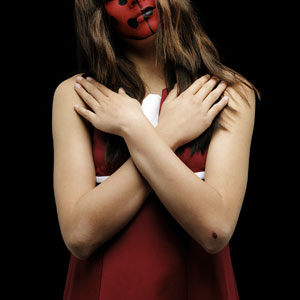
Autumn Dusk
Dark Fables
Innocence is a quality frequently misapplied to the young.
It is a notion projected onto children by adults. Adolescents particularly crave knowledge and experience (if not actually academic learning). Childhood games typically anticipate what it might be like to be grown up (to be an agency in the world).
A tiger cub leaping onto the back of its sibling, tumbling over and nuzzling its neck may look like cute play, but it is preparation for bringing down an axis deer or a wild boar. A rehearsal for the struggle of life. The young girl who preens and flirts with her father is rehearsing a role of adult life in a script of which she is yet not fully aware. It's part of the evolutionary programming: to try things out and see what works. To quarry meaning and effect. And we, as adults, through our responses, determine what patterns of activity are reinforced and which abandoned. In this we are complicit in the roles and narrative of play.
It is within the interstices of childhood recollection and adult complicity that the artist Deborah Paauwe situates her oeuvre. Her photographs are based upon youthful memories and feelings. They are not necessarily directly autobiographical but rather conjure recollections of how it felt to be young, growing up, with life in a state of flux. Each body of work features anonymous female players - sometimes a child, sometimes an adolescent, sometimes a young woman. In each there is an interplay between the qualities of her costume, her apparent age and the narratives suggested by her body language. However, each series has had a quite distinct tone - sometimes vivid in colour or florid in pattern, at others soft, sugary and diffuse.
Here in the new body of work, Dark Fables, each female figure wears a party frock and make-up. The painted faces are stylized - part kindergarten, part Commedia del'Arte, part cartoon menagerie. Some hint at the animalistic, some carry the chill pulchritude of a porcelain doll. The poses are deliberate and self-possessed. Knowing.
© Alasdair Foster 2004